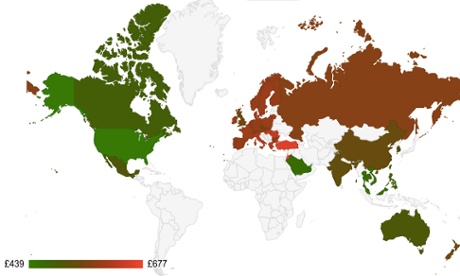Scott Adams relates his quasi-religious experience with the latest iPhone:
The experience of getting the iPhone 6 Plus was like getting a puppy. From my first touch of the sleek, sexy miracle of technology I was hooked. I loved it before I even charged it up.
It was large in my hand, and slippery to hold, but I didn’t mind. That would be like complaining that my newborn baby was too heavy. This phone is pure art and emotion frozen in a design genius so subtle that competitors probably can’t even duplicate it. It was pure beauty. Sometimes I found myself just staring at it on the desk because I loved it so. Oh, and it works well too.
But I needed a case. I tried to imagine my anguish if I accidentally dropped this new member of my family and cracked it. I needed protection.
So I went to the Verizon store and bought the only cover they had left that doesn’t look like a six-year old girl’s bedroom wall. The color of my new case could best be described as Colonoscopy Brown. It is deeply disturbing. But because I love my iPhone 6 Plus, and want to keep it safe, I put it on.
Now my phone is not so much a marvel of modern design. Nor would I say it is nourishing my soul with beauty and truth the way it did when naked.
Now it just looks like a Picasso that three hundred homeless people pooped on. You know there’s something good under there but it is hard to care. Now when I see my hideous phone on my desk I sometimes think I can hear Siri beg me “Look away! Look away!”
[…]
Beauty needs to be temporary to be appreciated. I think those magnificent bastards at Apple know that. I think they made the case slippery by design. They want you to know that if you keep your phone selfishly naked, and try to hoard the beauty that is designed to be temporary, that phone will respond by slipping out of your hand and flying to its crackly death on a sidewalk.





